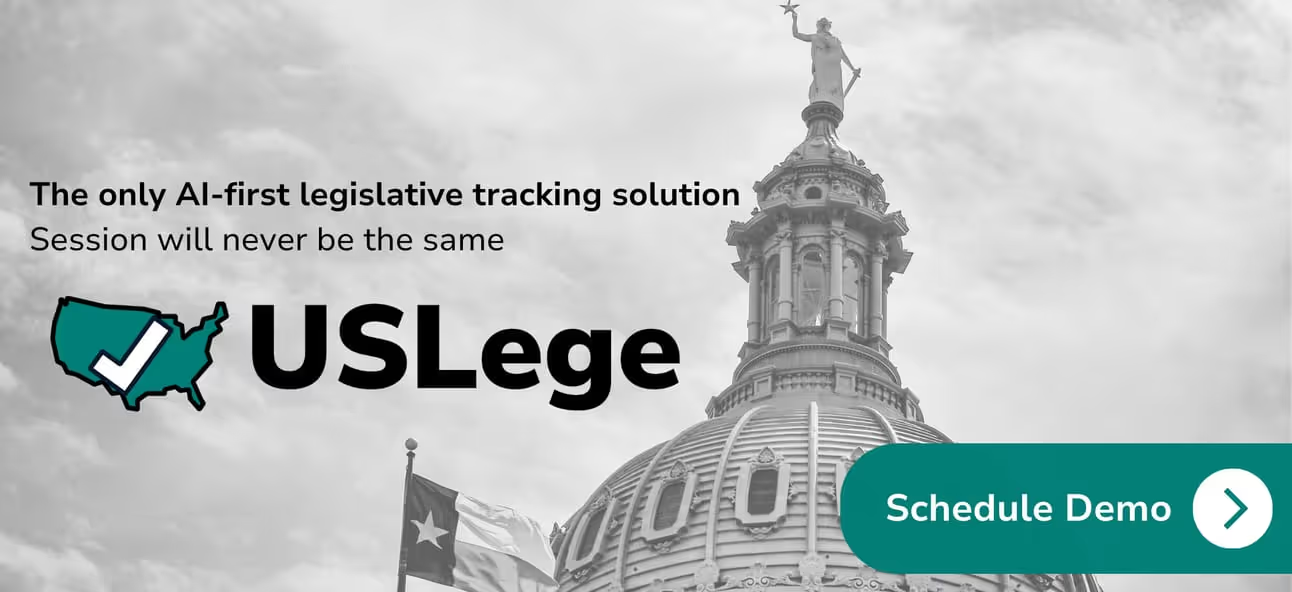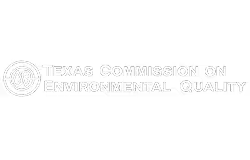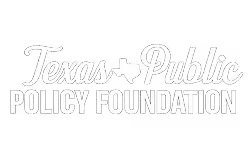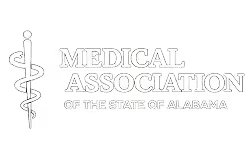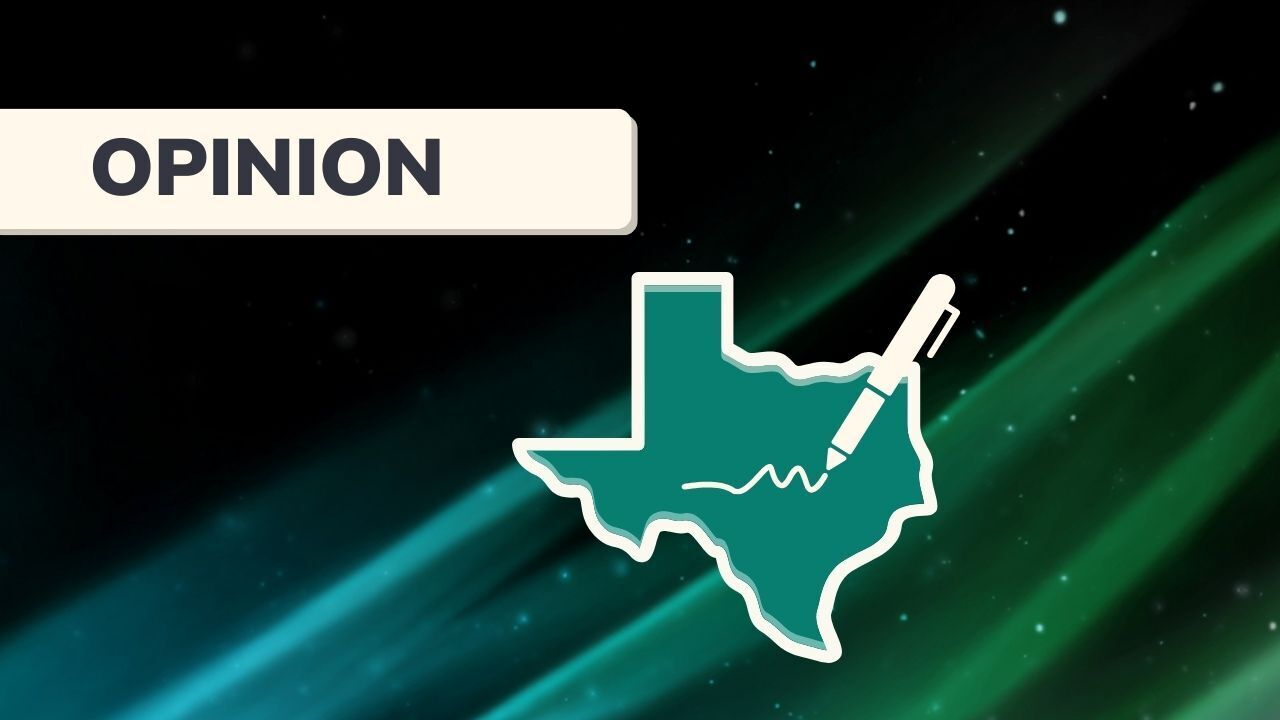
Welcome to Friday Forum, a weekly segment where we explore diverse opinions on the topics shaping Texas politics and business. The views expressed here represent the perspectives of individual contributors and are not endorsements by TXLege News. Our aim is to encourage thoughtful discussion and present a range of viewpoints on issues that matter to Texans. Email info@uslege.ai for submitting opinion contributions.
Make Texans Healthy Again: A Bold Vision for Change
Texas is at a crossroads. Chronic diseases, poor nutrition, and rising healthcare costs are straining our communities, wallets, and the state budget. With bold leadership, we can turn the tide and create a healthier state—where thriving, not just surviving, is the standard.
This vision is at the heart of Make Texans Healthy Again (MTHA). MTHA is committed to fighting for policies that protect personal choice, expand access and transparency, and lower the cost of healthcare, prescriptions, and nutritious food. Focusing on prevention—such as routine health check-ins, education on nourishing the body with whole, unprocessed foods, and encouraging kids to stay active and eat healthy in schools—we can reduce the need for costly treatments and empower Texans to lead healthier, more fulfilling lives.
This isn’t just a policy issue to me—it’s personal. I’ve witnessed firsthand the devastating toll of chronic disease on my family: my mother suffered a debilitating stroke at just 49, leaving her with lifelong disabilities, and my father’s life was tragically cut short by a late-detected illness. In contrast, my own health journey—losing 80 pounds by cutting out processed foods and prioritizing movement—has shown me the transformative power of prevention and how different the story can be when we address root causes early.
I’ve also experienced the transformative impact of functional medicine in helping my wife and me welcome a healthy daughter after multiple miscarriages. That same approach—combining thoughtful care with lifestyle changes—helped when my dog was diagnosed with an aggressive form of cancer. They said it would surely return, but four years later, with the help of modern medicine and a diet overhaul, she’s still in remission. Real change doesn’t come from a pill but from addressing root causes with better nutrition, exercise, and lifestyle choices. Texans deserve better, and I’m committed to helping create meaningful change.
The Cost of Chronic Disease in Texas
The stakes couldn’t be higher. Chronic issues like heart disease, diabetes, and obesity account for the majority of healthcare costs, with Texas Medicaid spending tripling over the last two decades. Nearly 70% of adult Texans are overweight or obese, mirroring a national trend where obesity rates have soared from 14.5% in 1971 to 42.8% today. Poor nutrition and lack of physical activity are major contributors to this crisis. Ultra-processed foods now account for 57% of the average American’s calorie intake. Shockingly, the consumption of high-fructose corn syrup has increased by 7,300% since 1970, fueling metabolic dysfunction. Today, 93% of Americans fail key metabolic health markers, highlighting the scale of the problem.
The consequences go beyond health—they affect our economy, our families, and even our national security. Over 80% of Americans fail to meet recommended physical activity guidelines, and the average adult spends over six hours a day sitting. These trends have contributed to 77% of Americans being ineligible for military service due to issues like obesity and poor fitness levels.
Low-Hanging Fruit for a Healthier Texas
While tackling chronic disease and poor nutrition is a complex challenge, this legislative session presents opportunities to make meaningful progress with common-sense solutions. Several proposals aim to address key areas that directly impact the health and well-being of Texans.
For instance, Senator Hughes and Representative Harris-Davilla are leading efforts to ensure school meals are free of harmful additives, protecting children from exposure to chemicals linked to long-term health issues. Senator Middleton has proposed preventing tax dollars from subsidizing unhealthy food purchases through nutrition assistance programs, ensuring our most vulnerable communities have access to better choices.
Senator Kolkhorst and Representative Goodwin are fighting to expand cottage food production and empower small businesses to provide fresh, whole foods to more consumers while reducing unnecessary red tape. Senator Kolkhorst is also driving efforts to enhance transparency in prescription drug pricing, empowering patients to make informed healthcare decisions and reducing the influence of Pharmacy Benefit Managers—profit-driven middlemen often tied to big pharma. And Representative Oliverson is spearheading a push to require nutrition education in Texas medical schools, highlighting the critical role diet plays in preventing chronic disease and improving patient outcomes.
These are straightforward, impactful measures that can set the foundation for broader health reform in Texas, and they’re just the beginning. This session, many other great proposals are on the table, tackling everything from healthcare affordability to nutrition education. Families deserve access to better health without being burdened by rising healthcare costs, so their communities can strive for a brighter, healthier future.
Momentum is on our side. The "Make America Healthy Again" movement has become a major political issue nationwide, and all eyes are on Texas to lead. What we do in the next six months has the potential to become the model for the entire country. By prioritizing preventative healthcare, empowering small businesses, and ensuring access to nutritious food, Texas can show the rest of the nation how to build a healthier, stronger future.
Learn more and get involved at MakeTexansHealthyAgain.com
About the Author
is an Austin-based consultant with over a decade of experience in government and political campaigns. He has served in senior roles in both the Texas House and Senate, as well as Chief of Staff for a statewide elected official. McCormick is the founder of Make Texans Healthy Again, a grassroots organization dedicated to advancing state-level policies that promote transparency, affordability, access, and freedom in healthcare and nutrition. A graduate of the University of Texas, he lives in Austin with his wife, Elizabeth, and their daughter, Winnie.
We hope you enjoyed today’s read!
🎙️We Have a Podcast! 🎙️
Bills and Business is your go-to podcast for conversations related to Texas legislation and business. Hosted by Laura Carr, Co-Founder of USLege—an AI-driven legislative tracking software—we bring you in-depth analysis on economic trends, impactful legislation, and key developments shaping Texas business.
Subscribe on Youtube and Spotify for weekly episodes!

- 01 First
Subscribe to our Newsletter

Read more news

How Government Affairs Teams Use Legislative Tracking Software to Stay Ahead of Policy Changes
Policy professionals are expected to stay ahead of policy changes while managing constant updates across multiple jurisdictions.
Relying on manual methods makes it difficult to keep pace with how quickly bills move through the legislative process.
Government affairs teams face pressure to track legislation across Congress, states, and local bodies.
A single bill can change direction after committee hearings or amendments, leaving little time to respond.
When updates are missed, advocacy efforts, compliance planning, and stakeholder trust can suffer.
Many organizations still depend on email alerts, spreadsheets, and fragmented search tools.
These approaches lack structure and often fail to surface relevant updates at the right moment.
As regulations grow and legislative calendars tighten, teams need better visibility and control.
Legislative tracking software provides a centralized way to monitor bills, receive real-time alerts, and analyze legislative and regulatory data. Instead of reacting late, teams can anticipate developments, stay informed, and make informed decisions with confidence.
This article explains what legislative tracking is, why it matters, how teams use it, and how organizations can stay ahead of policy changes with structured tracking.
What Is Legislative Tracking Software?
Legislative tracking software is a system designed to track bills, monitor legislation, and organize legislative and regulatory data in one place.
It transforms raw information into usable insights that support analysis, reporting, and strategy.
Instead of scattered sources, users access legislation, regulations, and related data through one platform using legislative tracking software.
This structure allows policy professionals to quickly understand how changes affect priorities and stakeholders.
How It Supports Bill Tracking
Bill tracking involves following a bill from introduction through hearings, amendments, votes, and outcomes.
Tracking software allows teams to track bills across jurisdictions while maintaining a clear timeline of activity.
Centralized Legislative Data Access
With a centralized database, users gain consistent access to bills, committee assignments, and regulatory updates.
This reduces duplication and improves focus across the organization.
Why Legislative Tracking Has Become Mission Critical
Growing Legislative Volume
Each legislative session introduces thousands of bills at the federal level and state levels.
Manual review becomes impractical as volume increases.
Shorter Response Windows
Bills often move quickly from introduction to committee hearings.
Real-time alerts help teams stay ahead of deadlines and never miss key moments.
Increased Regulatory Risk
Missed policy changes can result in compliance gaps, legal exposure, and reputational harm.
Regulatory tracking helps reduce risk by improving awareness and timing.
How Government Affairs Teams Use Legislative Tracking Software
Monitoring Bills Across Jurisdictions
Government relations teams often manage activity across multiple jurisdictions.
Legislative tracking provides coverage at the federal, state, and local levels without creating silos.
Identifying Policy Impact Early
AI-powered insights surface relevant bills and policy developments before they reach critical stages.
Early analysis allows teams to anticipate impact and prepare responses.
Supporting Advocacy and Lobbying Efforts
Advocacy depends on timing and context. Real-time alerts notify teams of hearings, amendments, and votes so advocacy strategy aligns with legislative movement.
Role of Real-Time Alerts in Policy Monitoring
Alert Types That Matter
Alerts notify teams about bill movement, committee hearings, amendments, and executive orders.
These alerts reduce manual search and support faster response.
Email Alerts and Workflow Control
Email alerts deliver critical information directly to policy professionals.
Combined with dashboards, alerts help teams stay informed without overload.
Core Features That Matter Most
Advanced Search and Filtering
Search tools allow users to filter bills by keyword, sponsor, committee, jurisdiction, or date.
This ensures relevant results and better focus.
Bill Summaries and Ongoing Analysis
Bill summaries translate legislative language into plain terms.
Ongoing analysis highlights how each bill changes over time.
Reporting and Team Collaboration
Advanced reporting supports internal briefings and leadership updates.
Team collaboration improves when insights and reports are shared centrally.
Legislative Tracking vs Manual Monitoring
Manual tracking relies on constant review and fragmented tools.
Tracking software improves accuracy, speed, and coverage.
Who Benefits Most From Legislative Tracking Software?
Government Affairs Teams
Government affairs professionals use legislative tracking to manage advocacy, policy monitoring, and stakeholder communication.
Compliance and Policy Professionals
Regulatory tracking supports compliance teams by monitoring regulations and legislative changes that affect obligations.
Public Policy Managers and Analysts
A public policy manager relies on tracking tools for analysis, reporting, and informed decisions.
Best Practices for Implementing Legislative Tracking
Define Priorities Early
Teams should identify key issues, jurisdictions, and stakeholders before enabling alerts.
Align Tracking With Strategy
Legislative tracking should support a broader policy and advocacy strategy.
Review and Refine Regularly
Regular review ensures alerts and search criteria remain relevant as priorities shift.
Managing Information Overload
Filtering for Relevant Data
Strong filtering and AI-powered insights reduce noise and surface critical information.
Using Summaries to Quickly Understand
Bill summaries help teams quickly understand changes without reviewing the full legislative text.
Supporting Advocacy With Better Data
Data Driven Advocacy Strategy
Advocacy benefits from accurate data, clear analysis, and timely alerts.
Sharing Insights With Stakeholders
Teams can share updates and reports with stakeholders to maintain transparency and trust.
Security and Data Integrity
Protecting Sensitive Information
Tracking platforms prioritize security to protect legislative data and internal strategy.
Controlled Access and Permissions
Access controls ensure only authorized team members can assign tasks or generate reports.
Legislative Coverage Across Jurisdictions
Federal, State, and Local Coverage
Tracking tools provide coverage across jurisdictions to avoid blind spots.
Comprehensive Coverage Without Duplication
Teams maintain visibility without overlapping effort.
Reporting That Supports Leadership
Custom Reports for Briefings
Custom reports help leadership review policy impact quickly.
Advanced Reporting for Long-Term Strategy
Reports support long-term planning and organizational review.
Staying Ahead of Policy Changes
Anticipating Legislative Trends
Legislative tracking allows teams to anticipate change rather than react late.
Never Miss Critical Updates
Real-time alerts ensure teams never miss hearings, amendments, or votes.

Texas Political Spotlight
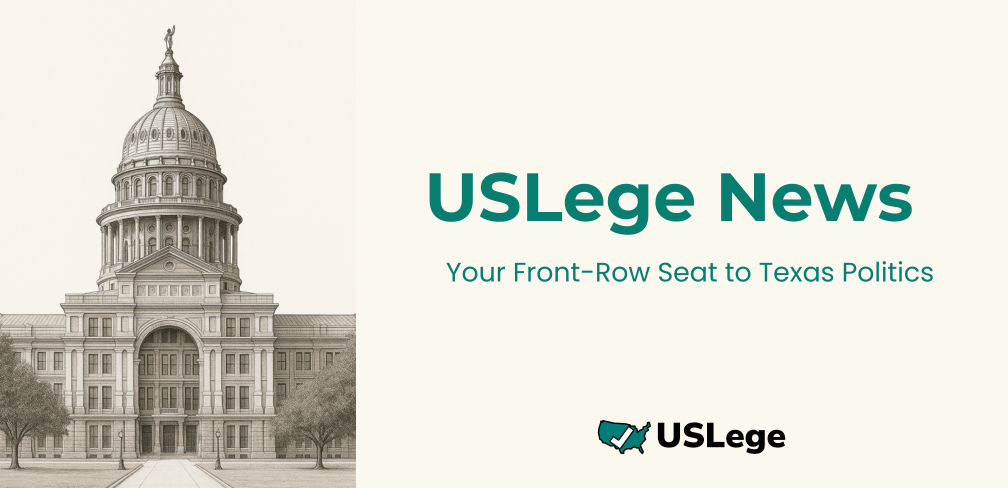
Welcome back, friends
A crowded Republican primary to replace U.S. Rep. Chip Roy is taking shape as former MLB star Mark Teixeira pours millions into his campaign and secures endorsements from President Trump and Gov. Abbott, positioning himself as the early frontrunner in a race that will likely decide the next representative for the solidly red district. At the same time, federal regulators have launched an inquiry into ABC’s The View after it interviewed Texas Senate candidate James Talarico. Meanwhile, Attorney General Ken Paxton is suing a Bastrop rendering plant over emissions described by residents as overwhelming and harmful, escalating a high-profile environmental dispute that has drawn hundreds of complaints and could result in significant penalties for the company.
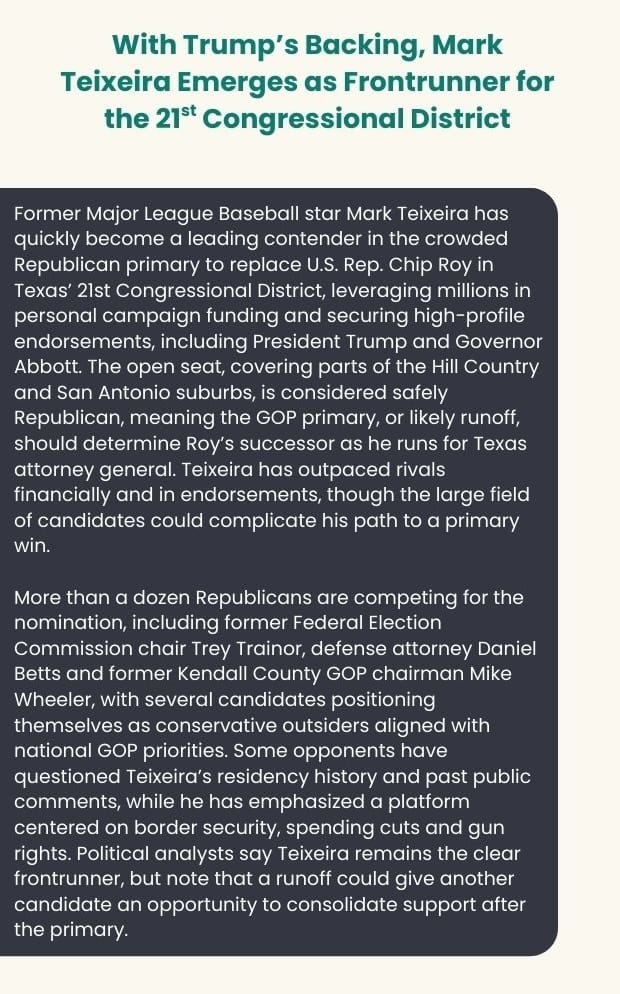
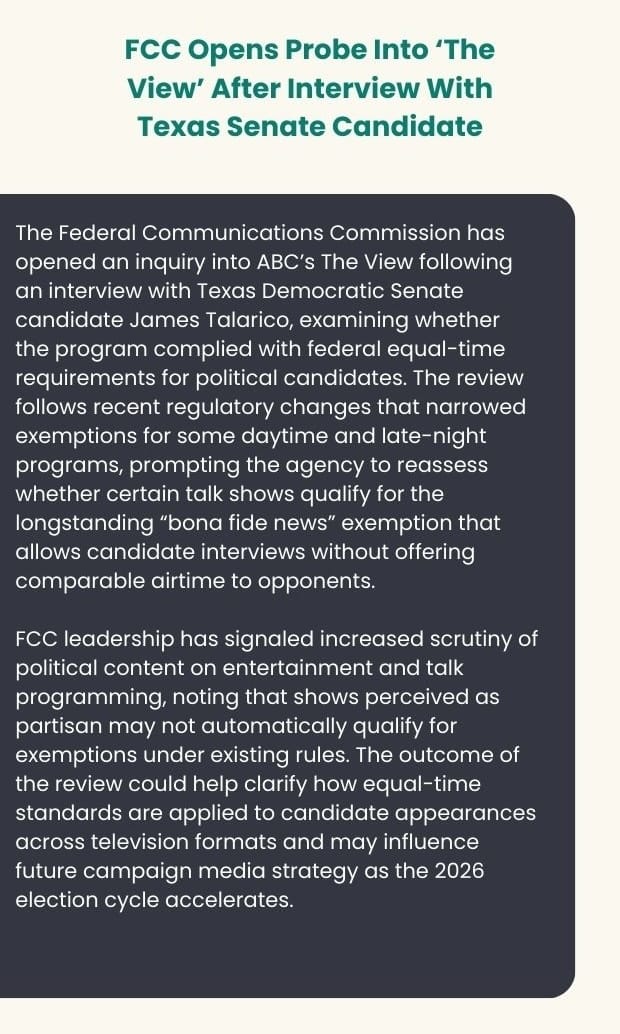
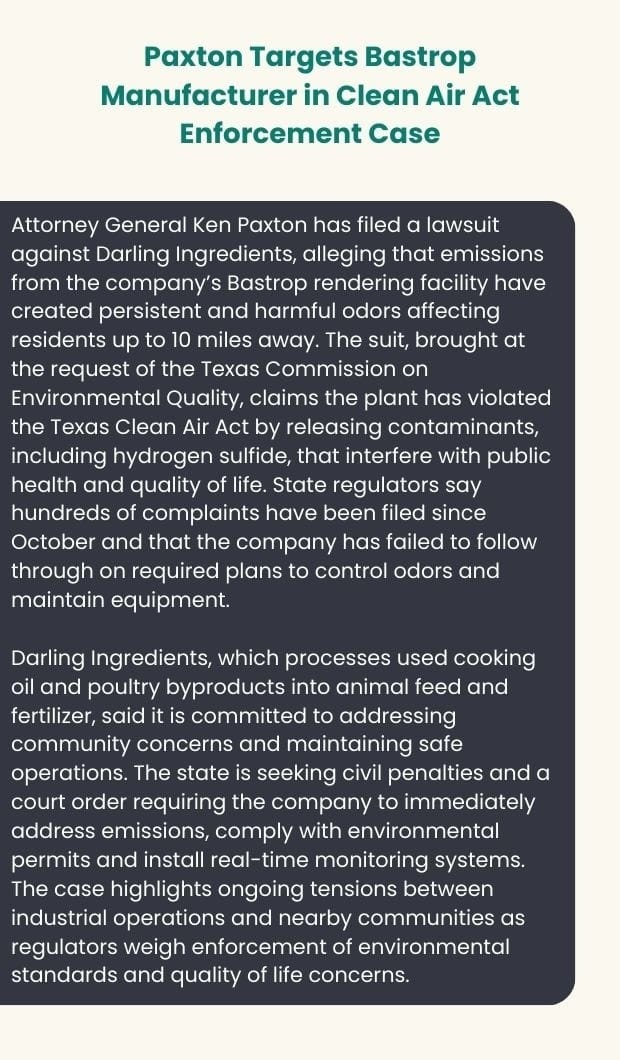
We hope you enjoyed today’s read!
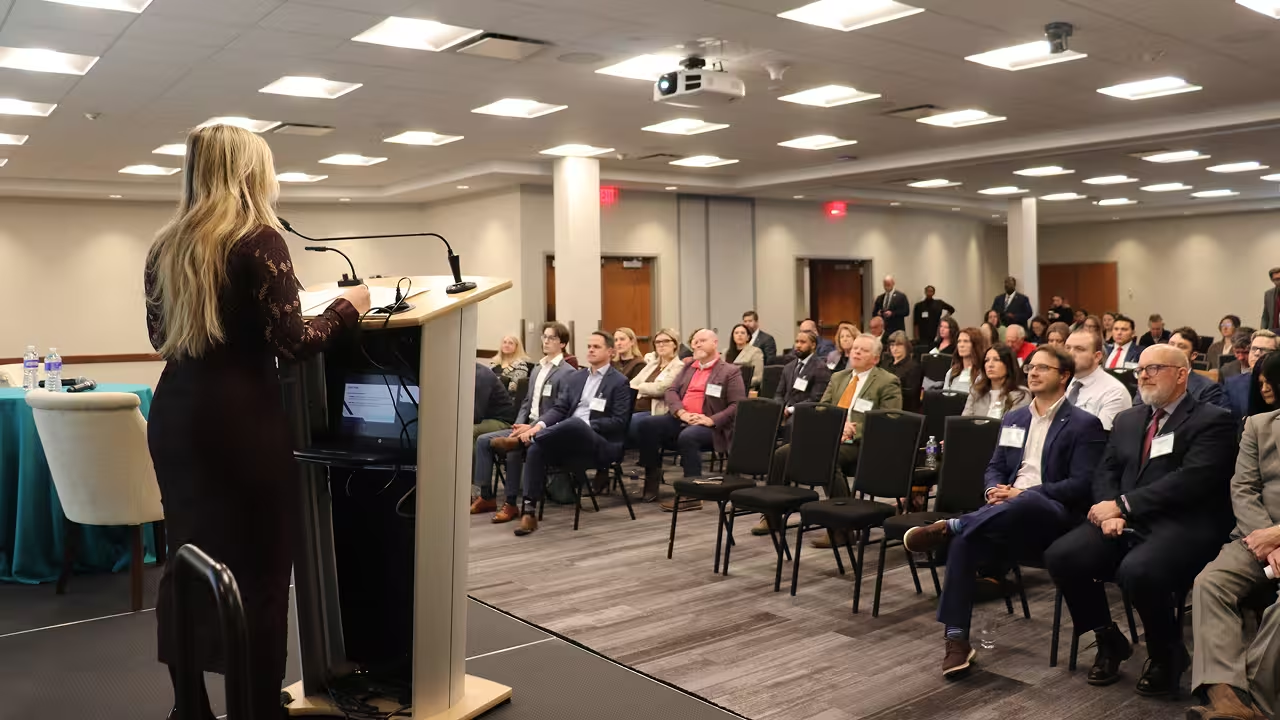
Why Governors’ Offices Need Modern Legislative Technology to Keep Up
Governors are expected to move quickly, stay aligned with their legislatures, anticipate risk, and make high-stakes decisions. At the same time, legislative activity is accelerating, policy language is constantly shifting, and critical conversations are happening in more rooms than any one team can cover.
From our perspective, one thing Governor Hochul articulated so clearly is this: modern governance requires modern tools.
Below are five reasons governors’ offices need modern legislative technology to keep up, grounded in the realities discussed at the event and informed by the lived experience that led to the creation of USLege.
1. Speed Is No Longer Optional for Governors’ Offices
Governor Hochul spoke repeatedly about urgency. Whether the issue is immigration, energy policy, budgets, or federal action, governors are expected to respond in real time. Legislative timelines do not pause, and waiting for end-of-day summaries or secondhand updates is no longer sufficient.
For governors’ offices, speed is not about reacting publicly faster. It is about knowing what is happening inside the legislature the moment it happens.
Modern legislative technology makes that possible by providing live and archived legislative video, searchable transcripts, and real-time alerts tied to executive priorities. Instead of learning about developments after the fact, governors’ offices gain immediate visibility and can engage while there is still time to shape outcomes.
.avif)
2. Governing Now Means Managing Many Crises at Once
During the conversation, Governor Hochul moved rapidly between topics that, on their own, would consume most executive agendas: immigration enforcement, climate mandates, budget negotiations, federal funding uncertainty, and electoral dynamics. The speed at which she shifted was not rhetorical. It reflected the reality of governing today.
Multiple high-stakes issues are live at the same time, often moving on different timelines and through different parts of the legislature. Governors are expected to track all of them simultaneously and make decisions with confidence, even when developments are unfolding in parallel.
This creates a structural challenge for governors’ offices. Critical information is being generated across committees, hearings, and negotiations at the same time. No single team can manually monitor it all, yet missing a development in any one area can have real policy or political consequences.
Modern legislative technology helps governors’ offices manage this complexity by monitoring legislative activity continuously and surfacing the moments that intersect with executive priorities. It ensures leadership teams are not choosing which issue to see, but instead have visibility into all of them — as they happen.
.avif)
3. Institutional Knowledge Is Critical and Increasingly Fragile
Governor Hochul emphasized the importance of understanding the levers of government. That insight applies just as strongly to governors’ offices as it does to elected leadership.
Institutional knowledge is what allows staff to distinguish noise from risk, anticipate reactions, and advise governors with confidence. But that knowledge is increasingly fragile. Staff turnover, compressed timelines, and information overload mean teams spend more time capturing information than interpreting it.
Taking notes has quietly become the job.
Modern legislative technology restores balance by preserving institutional knowledge at scale. Searchable video libraries, historical transcripts, and AI-powered summaries allow offices to retain context over time. New staff ramp faster. Experienced staff spend less time transcribing and more time thinking strategically.
Technology does not replace judgment. It protects it.
.avif)
4. Policy Risk Often Hides in Amendments and Language Changes
Another reality discussed at the event is how fluid policy really is. Bills evolve. Language shifts. Provisions are revived through amendments after appearing to be settled.
Traditional bill tracking relies heavily on keywords. But keywords miss intent, and intent is where risk lives.
Governors’ offices need visibility into how legislation is changing, not just whether a keyword appears. AI-driven legislative intelligence makes it possible to track meaning across drafts, flag material changes, and surface provisions that introduce new risk or opportunity.
This is especially critical during budget negotiations and end-of-session periods, when seemingly minor language changes can carry significant policy and political consequences.
.avif)
5. Confidence Comes From Context, Not Guesswork
Governors are expected to make decisions with confidence, even when timelines are tight and information is incomplete. That confidence does not come from more data. It comes from having the right information, with context, at the moment it is needed.
Modern legislative platforms reduce noise, prioritize relevance, and connect executive teams directly to original source material. Instead of relying on summaries filtered through multiple layers, governors’ offices can see, hear, and understand legislative developments firsthand.
When leadership teams trust their visibility into the legislature, they spend less time managing surprises and more time leading.
.avif)
The Bottom Line for Governors’ Offices Nationwide
The challenges discussed at Capitol Confidential Pro were not New York-specific. They reflect the reality of governing in every state today.
Modern legislative technology is no longer a nice-to-have. It is the foundational infrastructure for effective executive leadership.
USLege was built by people who have done this work inside legislatures, governors’ offices, and policy roles. Every feature maps to a real failure point that professionals have lived through.
For governors’ offices across the country, staying informed, aligned, and ahead now depends on tools designed for the pace and complexity of modern government.

Texas Political Spotlight

Welcome back, friends
A crowded Republican primary to replace U.S. Rep. Chip Roy is taking shape as former MLB star Mark Teixeira pours millions into his campaign and secures endorsements from President Trump and Gov. Abbott, positioning himself as the early frontrunner in a race that will likely decide the next representative for the solidly red district. At the same time, federal regulators have launched an inquiry into ABC’s The View after it interviewed Texas Senate candidate James Talarico. Meanwhile, Attorney General Ken Paxton is suing a Bastrop rendering plant over emissions described by residents as overwhelming and harmful, escalating a high-profile environmental dispute that has drawn hundreds of complaints and could result in significant penalties for the company.



We hope you enjoyed today’s read!

Texas Political Spotlight

Welcome back, friends,
Gov. Greg Abbott has ordered a statewide freeze on new H-1B visa applications at Texas public universities and state agencies. In the Democratic race for lieutenant governor, steelworkers union leader Marcos Vélez is gaining traction with major labor backing and fresh scrutiny over fundraising ties linked to Texas Majority PAC as the primary nears. Lastly, Abbott says the White House is developing a plan to “recalibrate” ICE enforcement after fallout in Minnesota, as Texas simultaneously weighs billions more for Operation Lone Star and its ongoing border strategy.
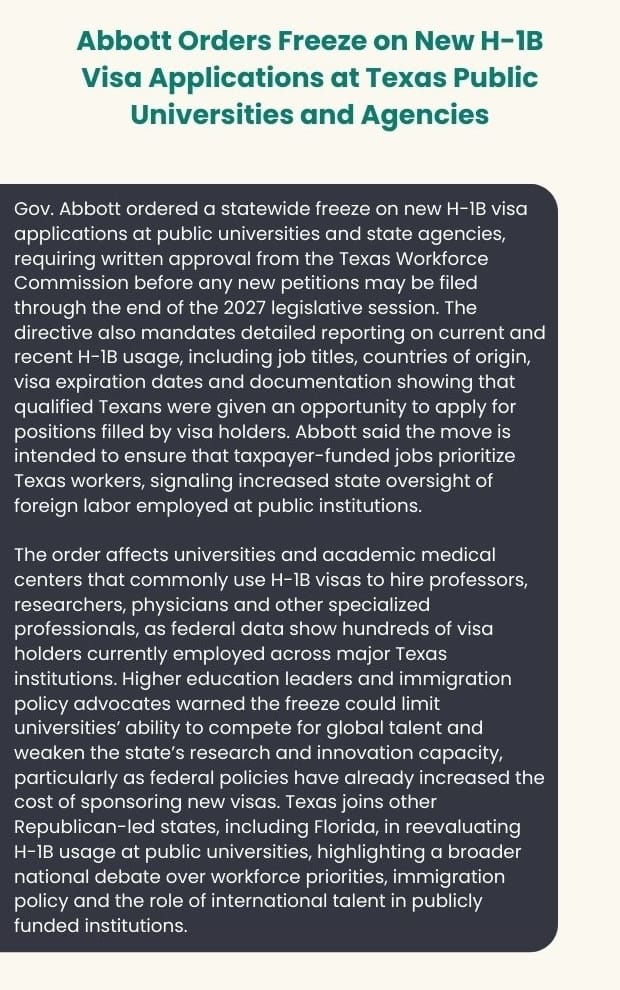
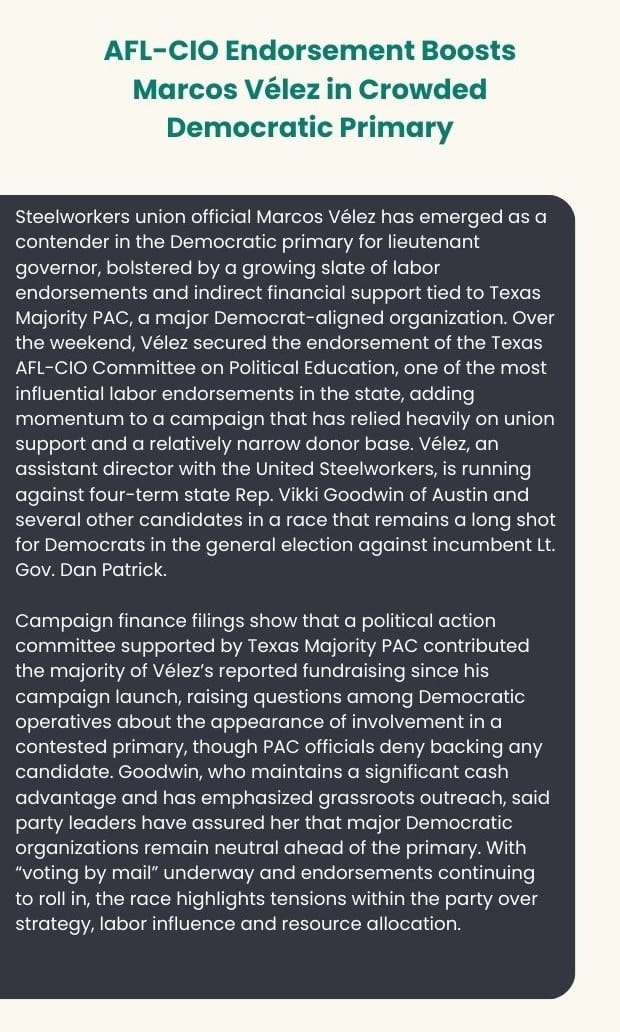
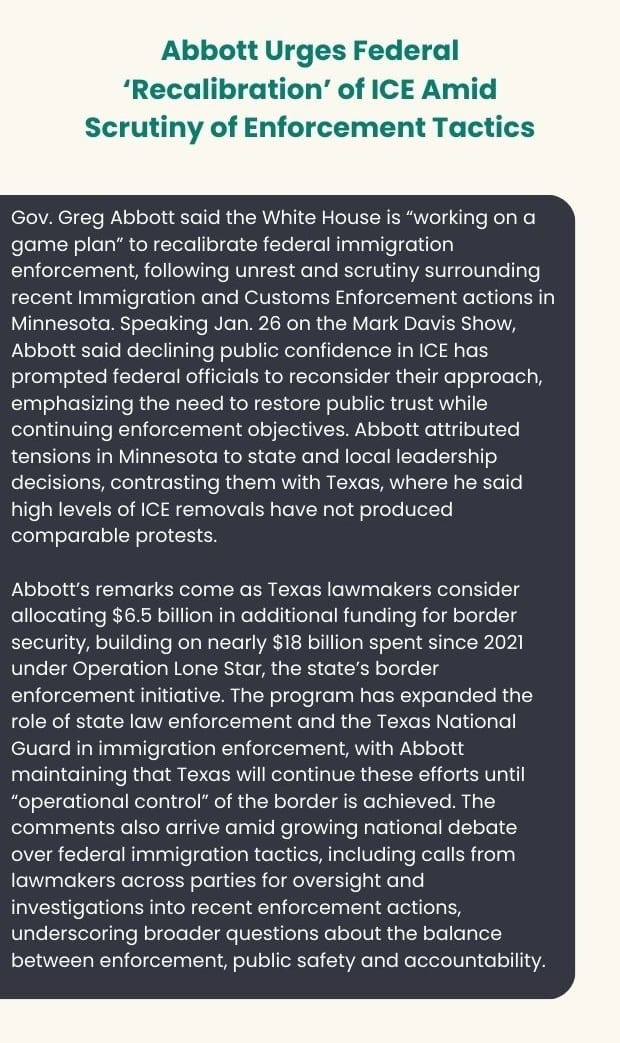
We hope you enjoyed today’s read!
Stay connected with TXLege News on X and LinkedIn!


Texas Political Spotlight

Welcome back, friends
Texas is facing a pivotal legal test over its election system as Republicans seek to end open primaries, a move that supporters frame as protecting party autonomy and critics warn could create new barriers to voter participation. At the same time, federal officials are considering a land exchange that would allow SpaceX to expand its South Texas launch site, renewing debate over how to balance economic growth with the preservation of sensitive wildlife habitat along the Gulf Coast. Lastly, a federal judge has blocked a new Texas law regulating children’s access to app stores, underscoring the ongoing uncertainty over how far states can go in policing online safety without infringing on constitutional rights.
.jpeg)
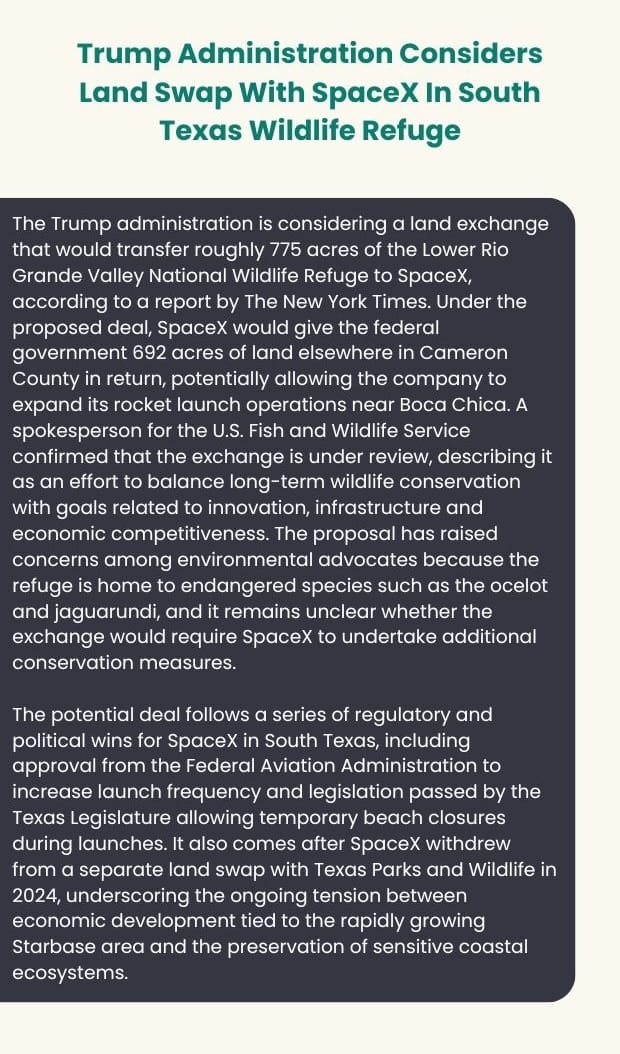
.jpeg)
We hope you enjoyed today’s read!



